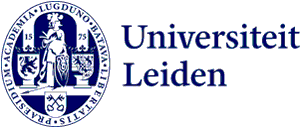
Sarah Cramsey appointed professor: ‘I want to uncover the underrepresented stories in history’
Sarah Cramsey was appointed professor by special appointment of Central European Studies at the Institute of History on 14 September. 'I am keen to incorporate different scholarly approaches into my work and raise the profile of Central European Studies in Leiden.'

In her research, Cramsey tends to study the region’s margins and minorities in the area between Salzburg, St. Petersburg and Sarajevo. ‘I focus not only on what was happening in Vienna. I am much more interested in what happened in the border regions. I want to uncover the stories of those who have been underrepresented in history,’ she explains.
In doing so, she focuses mainly on Jewish populations in central and eastern Europe. 'It’s a wonderful region to research and problematise the modern history of people following a Jewish way of life and their neighbours. These regions were home to the largest percentage of the world's Jewish population in the late 1930s. The communities in this area had lived side by side relatively peacefully for generations - with economic contacts, friendships, children marrying each other, and so on. Then everything was torn apart by war and genocide. An important question to ask is how those peaceful communities turned into communities of fear, hatred and violence. In this way, we can also assess the tools politicians, religious leaders and local authorities use to divide people. To do this, I draw on all kinds of approaches, from sociology and anthropology to political science, psychology and religious studies to law.'
Uncovering childcare
Cramsey also likes to focus on the margins in daily life. ‘My new book project Long Days and Short Years: A Century of Caretaking in east central Europe is about how families, communities and societies raise children and how that changes through both ordinary and extraordinary times. Take a look at the city of Prague and the political union that surrounded it between 1900 and 2000. The ‘state’ changed about nine times during that period. How did the consolidation of different political and economic systems impact the way families raised their children?’ Cramsey asks. ‘I see a gap in the way that we understand how humans live and how we all receive care. How do you know what happened before your first memory? Tired parents rarely write documents that end up in archives and the children themselves do not remember it.’ Cramsey seeks to capture how we care for growing families and the youngest in our midst.
Real-life experiences
In her teaching, she hopes to convey her enthusiasm to students. 'Years ago, I travelled around Central Europe with some students from the University of California, Berkeley, for several weeks studying the history of minorities and the rootedness of the Jewish minority in particular within this region. At one point near the end of our programme, we were sitting in a classroom when a new student joined us who was unfamiliar with the texts we had read and the experiences we had shared about the complicated history of east central European Jewish life before the destruction caused by the Holocaust and the Second World War. This student asked what came across as a rather blunt question: ‘Why would Jews want to live in post-war Poland given that Jews did not ‘belong’ in Poland?’ I immediately saw 15 of my students looking at me, waiting for me to intervene and complicate her worldview. Instead I sat back and said to my students ‘I don’t have anything to say, but you all do! Answer her question!’
'People often make a clear distinction between Poles and Jews, but in 1939 there were more than three million people of Jewish faith living in Poland. They did not all have the same idea about who was who and who belonged where. There were Jewish people who considered themselves Polish,' she explains. 'Having to explain that was the best exam my students could have had, because it was a real-life experience. Of course it is important to learn how to write a paper and do systematic research, but I want my students in that situation to be ready to say: let me tell you something about the Jewish experience in Poland and complicate your idea about the rootedness of minorities in east central Europe.' This is a region, Cramsey believes, that is best understood through the lens of its minorities and how minority groups interact with others.
